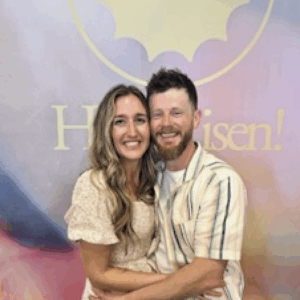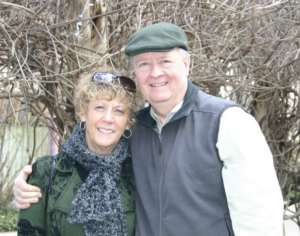David was what we might call a high-functioning sinner. Tons of talent. A mighty warrior. Obviously charismatic (he attracted thousands of people). God’s choice to lead Israel.
And also (by the way) an adulterer and a murderer.
Nathan, David’s priest, got word of his sin. In an act of sheer brilliance and strength, he decided to let David walk gently into guilt by telling him a story. He said, “Once there were two men. One was rich and one was poor. One had flocks and herds of animals. The other one had one little lamb. Just one. Because it was all he had, this man loved his little lamb. He let it live in the house and eat from his table. He held that little lamb in his arms and rocked it like a child. He counted it as a child, one of his own.
“Meanwhile, the rich man sat in his wealth. When a traveler came to visit, the rich man decided that — rather than kill one of his own animals (of which there seemed no end) — he’d have a servant go after the poor man’s precious lamb. To feed his guests and enjoy a meal, he killed another man’s lamb.
“And then devoured it. Without the slightest remorse.”
As Nathan told his story, David began to seethe. How dare this monster? Furious at the injustice, David stormed, “The man who did this deserves to die! And he owes that poor man four lambs for the one he took, because he showed no pity!”
David walked right up to his own sin and somehow missed seeing himself there. Nathan said, “You’re that man, King David. Rich beyond words. King of Israel. Lands, people, power. The Lord has given you everything, and yet you take from a soldier a wife he loved rather than enjoying your own.
“And then, to make matters, worse, you kill him to cover for yourself.”
To be exposed is both horrible and holy. None of us likes to come face to face with our own depravity, to see it for what it is after soaking in our own delusions. The mark of one after God’s heart is the humility — when faced with our sin — to call it what it is. “I have sinned against the Lord,” David admitted. To which Nathan replied, in the very next breath, “The Lord has taken away your sin. You won’t die.”
We could make a message out of any one of those words in that brief exchange. There is David’s humility and the mark of healthy repentance. There is Nathan’s courageous, prophetic voice. There is the demonstration of God’s grace, poured out instantaneously in response to repentance. David’s admission and Nathan’s response bring to mind the scene in the parable of the prodigal son, when the son returns in contrition and the father runs to meet him. Something of God’s character is revealed. God is for us, not against us. God’s heart is always ready to run in our direction.
Nathan is a sign of God’s grace. Without someone with guts enough to show David his sin, he might have remained in it until his dying day. A life steeped in unrepentant sin turns sour over time. Without Nathan, David may well have ruined his place as the ancestor of God’s Messiah. Nathan’s truth-telling had a history-altering ripple effect.
Nathan is the real hero in this story, which prompts me to want a Nathan for all of us who lead. Who is your Nathan? Who in your life is wise enough, gentle enough, courageous enough to speak truth to you? Who is holding you accountable for spiritual growth? “Nathans” don’t usually just show up, uninvited, to invest in your life. Nathans are prayed for, sought after, developed.
If you’re looking for a Nathan to hold you accountable, look for:
- Someone who will be consistent: They can’t help if they aren’t there. Look for someone who tends to follow through, whose yes is yes.
- Someone whose only agenda is spiritual growth: The worst kind of accountability is someone who feels the need to “fix” you. Look for someone who genuinely respects you as a leader, and who is invested in your life and ministry. Someone who is leaning in, not leaning out.
- Someone who wants a relationship: The best kind of accountability is a two-way street. Look for someone who is both teachable and a teacher, who is open to both give and take in the discipline of accountability.
- Someone whose life and walk you respect: In order for someone to speak into my life, I need to know they are living out a disciplined faith in theirs. Look for someone who walks the walk, whose life is bearing fruit.
- Someone who considers this a sacred trust: What is said in any accountability conversation ought to stay with the two of you, and that ought to be an automatic assumption that never needs to be repeated. In my own community, there is nothing I wouldn’t share with my whole church, but my whole church doesn’t need to hear it all. And when it is told, it ought to be me telling it. Anyone who shares prayer and accountability with a leader needs to respect both the leader and those s/he leads.
As a leader, here’s what I need most. I need people in my life who love me enough to tell me the truth. I need straight-shooters who can cut to the point and trust me to handle it. I need adults in my life who are more devoted to Jesus and his Kingdom than to the kinds of southern politeness that leave me stuck in a bad place.
The Kingdom starves for prophetic voices like that.
And so do I.








